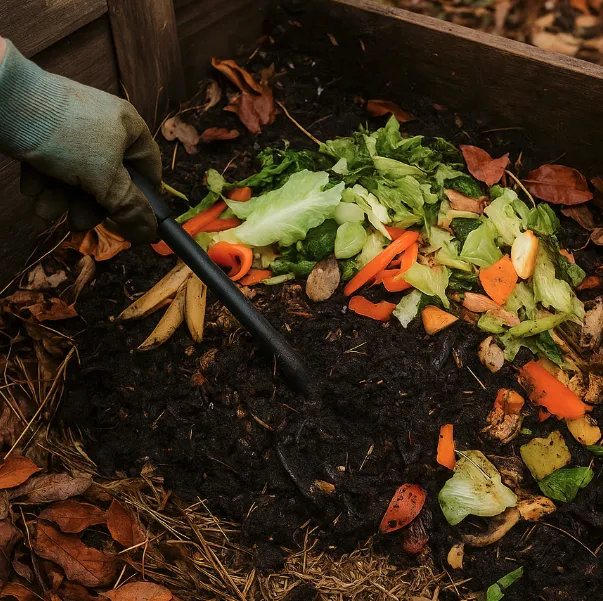
Composting as a Spiritual Practice: From Rot to Resurrection
What if your compost pile was more than a heap of scraps? At Clemson Tea Farm, it's a sacred place where waste becomes wonder—and faith gets its hands dirty.
The Gospel According to Banana Peels
Composting is smelly, slow, and often hidden—much like spiritual growth. It’s transformation at the microbial level: rot becoming richness, discard becoming renewal. That’s the Gospel, isn’t it?
When we add the day's scraps—apple cores, tea leaves, chicken litter—we’re reminded that God works with what’s broken. Grace doesn’t come prepackaged. It composts.
Nothing Is Wasted
Romans 8 tells us nothing is wasted in God's economy. Not our groans, not our growth spurts, not even that liquefied zucchini forgotten in the crisper. Composting turns that theology into a tactile truth.
On our farm, everything finds its way back—eggshells, corn husks, used tea leaves. What the world calls trash, God calls raw material.
Rhythms of Return
Composting teaches us that we’re part of a sacred cycle—not a machine. Apple peels, old hay, expired spinach—they all return to dust with a whispered truth:
"You are dust. But dust is not the end."
Turning the pile becomes a meditation. A whispered hallelujah. A rhythm of renewal, as sure as sunrise.
Slowing Down, Paying Attention
Compost won’t be hurried. Neither will healing, or faith that goes deep. It takes humility to tend a pile that won’t thank you for months.
At Clemson Tea Farm, we call this “dirt devotion.” It’s prayer with your boots on. It’s listening to what the earth—and the Spirit—have to say in silence.
The Sacred Mundane
Jesus did holy things in earthy ways—washing feet, breaking bread, making mud. Composting joins that sacred tradition. It’s not glamorous, but it is glorious.
When we scoop kitchen scraps into the pile, we’re saying:
"I believe in transformation. I believe in resurrection. I believe dirt can preach."
Closing Thought: A Theology of Decay
Compost is where death becomes life. The last becomes first. The rotten feeds the thriving. It’s a quiet miracle, tucked behind the chicken yard.
So go ahead—turn your pile. And while you’re at it, let God turn your heart.
Start your own compost pile—whether it’s a three-bin system, a worm bin under your sink, or a simple pile behind the chicken yard. Let it be your prayer-in-process. Your offering. Your little resurrection lab.
Wanna Geek Out?
Here are some resources that dive deeper into the sacred science of soil:
© 2025 Clemson Tea Farm. All rights reserved.
